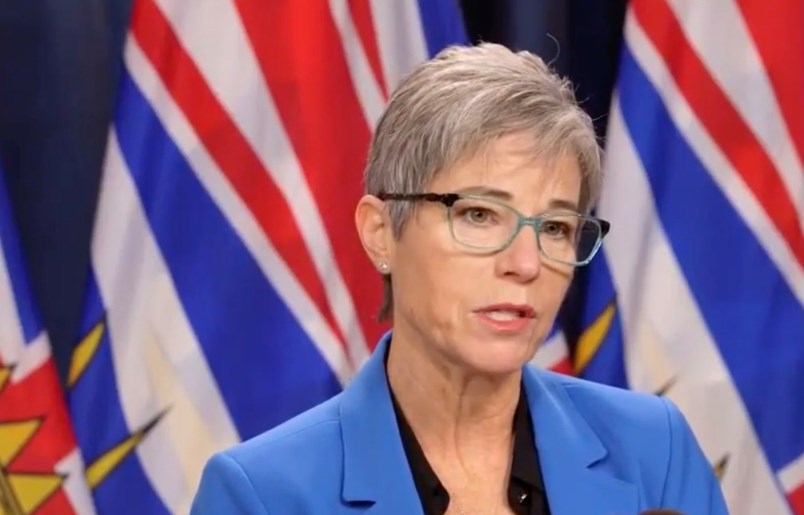The day Finance Minister Selina Robinson stood in the legislature to deliver her 2021-22 provincial budget was a bleak one indeed when it came to B.C.’s COVID-19 situation.
It was April 20, 2021, and the pandemic was at its peak in this province. Her budget then reflected the feelings everywhere: the world was in a heap of trouble and the economy was recovering but ever so slowly.
On that day, 148 people were in an ICU with covid-19, about 500 were in hospital and more than 30 deaths were being recorded each week.
“We know a recovery won’t happen overnight,” Robinson told the legislature in her budget speech, and no one seemed to disagree with that assessment at the time.
Her budget projected a huge deficit of $9.7 billion, with more deficits expected in the years ahead. The idea of a budget surplus seemed almost like a quaint idea from the distant past.
Imagine, then, the shock that greeted the release last week of the public accounts for the 2021-22 fiscal year. The final tallying of all the numbers showed that far from being in a huge deficit, the budget actually came home with an impressive surplus of $1.3 billion.
The surplus would have been even higher had the government not opted to spend an extra $3.5 billion over what was originally budgeted, most of it on health care, education and pandemic recovery programs (although a good chunk of that was spent on disaster relief and recovery).
However, the revenue side of the budget tells the story.
Revenues were up a whopping $10.2 billion from the previous year and up more than $13 billion over what was forecast (the budget had forecast a $2 billion decline in revenue).
It has to stand as one of the biggest miscalculations of anticipated revenues from one year to the next in B.C. history, if not the biggest period.
But Robinson and her finance ministry team can hardly be faulted for missing what no one saw coming. While it is commonplace for finance ministers to deliberately underestimate anticipated revenues in the coming year to make their budget look better when all the numbers are tallied in public accounts, that is not what happened here.
What no one seemed to anticipate was the phenomenal growth of economic activity in the province through the course of the year. The budget had estimated the provincial GDP would grow 4.4 per cent (a bit lower than the 4.9 per cent average of the forecasts of 13 private sector financial analysts; the highest of which was 5.9 per cent).
It turned out the B.C. economy grew by 6.2 per cent.
That growth helps explains the completely unexpected jump in taxation revenue by almost $7 billion. About $2 billion of that came from higher personal income taxes and about $900 million in additional sales taxes, which means more people worked and spent more money than had been anticipated.
All these figures mean B.C.’s economy roared back to life last year. The question now is, will that roaring continue?
Already the answer seems to be a likely no. I asked Robinson at her news conference last week for her take on how the current fiscal year is unfolding.
“This is a very different year,” she said. “We have global inflation, people struggling to make ends meet.”
Her first quarterly fiscal update will be released in a matter of weeks. I suspect it will show that last year may be as good as it gets, budget-wise, for quite a while.
But we’ve all been wrong before!
Keith Baldrey is chief political reporter for Global BC.




